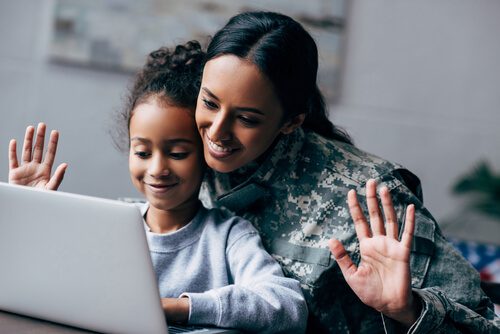Five Meaningful Ways to Help

People often wonder how they can help in this stormy era. However, many seldom take action. This is because they just don’t know how to do it. Similarly, some people believe they don’t have anything to offer. Nevertheless, there are many meaningful ways to help.
Solidarity is crucial and it shouldn’t be conditioned to a specific circumstance. Also, it shouldn’t be treated like a remedy to be administered drop by drop in highly controlled doses. Actually, solidarity is essential. Thus, it can come in handy and create an atmosphere of well-being in any given community.
“There are no ordinary people. You have never talked to a mere mortal. Nations, cultures, arts, civilizations – these are mortal, and their life is to ours as the life of a gnat. But it’s immortals whom we joke with, work with, marry, snub and exploit – immortal horrors or everlasting splendors. This doesn’t mean that we’re to be perpetually solemn. We must play. But our merriment must be of that kind (and it is, in fact, the merriest kind) which exists between people who have, from the outset, taken each other seriously – no flippancy, no superiority, no presumption.”
-C. S. Lewis-

Five meaningful ways to help others
1. Deal with your anguish
Uncertainty is one of the most difficult things to cope with in a crisis. The lack of certainty and imagining the possible consequences, along with its individual impact, is often concerning and discomforting.
This is enough to cause anxiety. Therefore, one of the most meaningful actions you can take is to take charge of any emotional excess. This means increasing your capacity to deal with any moments of anxiety you may experience. Also, you should give up on trying to dump your anguish onto others in the form of aggressiveness, intolerance, or irritability.
You’ll surely find ways to relax or distance yourself when you feel bad if you take it upon yourself to do so. Also, you can always seek help and ask someone wise and friendly to listen to you.
2. Avoiding conflict is a significant action
One of the effects of poorly managed anxiety is the urge to unleash conflict. A good argument often helps release some of the anguish you carry inside you when you’re tense. However, the cure could be worse than the disease. This is because these conflicts also leave a mark and only feed negative feelings and attitudes.
It’s true that you can’t always behave like you’re not vulnerable. It’s inevitable that nearly everyone will have a conflict with another person at some point during this confinement. The important thing here is to be vigilant so this doesn’t become a regular dynamic. Another meaningful way to help others is to try to avoid conflict, especially when it comes to petty issues.
3. Stay busy
You don’t have to use your free time to do the greatest work of your life, as people often suggest. Every person is free to decide how they’ll manage their time. Some will emphasize rest, especially if they haven’t done so in a long time or feel overburdened by a given situation.
Spending part of your time doing something that makes you feel useful can improve your mood and disposition. In fact, doing meaningful activities will keep you focused on enjoying things that interest you.
4. Calling your friends is a meaningful way to help
What’s keeping you from calling your friends to find out how they’re doing? They may be in need of some company. In fact, this is also a way to access new stimuli and transcend the reduced space in your home.
Cultivating and enriching friendships are two meaningful actions that boost your well-being. Knowing you’re not alone provides you with moral strength. In this sense, think of those who are currently alone and would benefit from communication.

5. Share
A lesson to draw from moments of crisis is that you have to learn to share more and promote an atmosphere of union and mutual help. This is because it’s greatly beneficial for everyone.
After all, on many occasions, collective luck largely depends on individual actions. Thus, difficult moments remind us that we depend on one another.
Merely considering meaningful ways to help others is a rather significant action because it implies adopting a constructive attitude. Thinking about others and looking for ways to help them will always make you feel stronger and more optimistic.
This text is provided for informational purposes only and does not replace consultation with a professional. If in doubt, consult your specialist.








